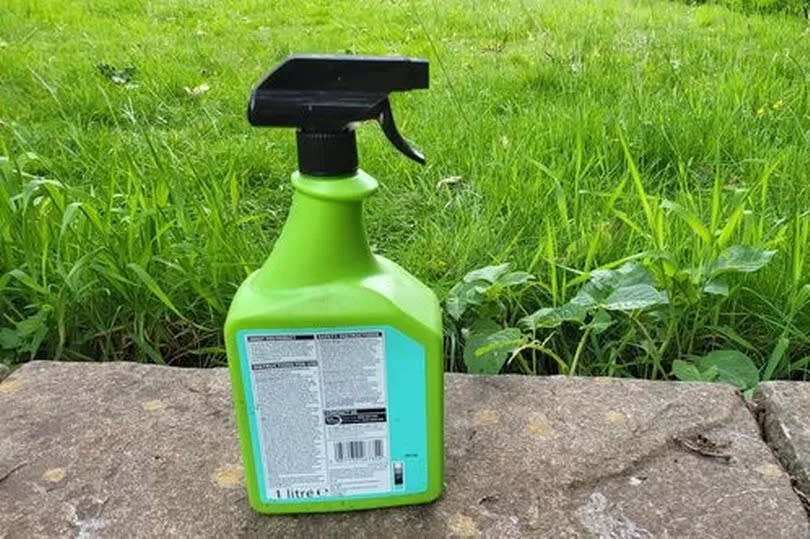Gardeners 'banned' from using weedkiller in garden throughout May

Gardeners are being urged to refrain from using weedkillers over the next two months following a stark warning from an expert. The sight of weeds sprouting between paving slabs or invading lawns can be distressing, especially when one has invested time and effort into maintaining their garden.
It's tempting to reach for a quick solution, with numerous products promising to eradicate weeds readily available at garden centres and online. However, many may not be aware that chemical weedkillers have been associated with harm to bees and other crucial pollinators such as wasps, flies, and butterflies, reports The Express.
This is concerning given the vital role these creatures play in our food chain, and with UK insect numbers reportedly down by 60 percent in the past two decades alone, the impact could be significant. If insect populations are decimated, food production could be affected due to the lack of pollinators.
READ MORE HMRC letters with £783 charges dropping on doormats this week
Pesticide Action Network Europe has highlighted several ways in which glyphosate weedkillers could potentially harm bees, including disrupting their gut microbiome, making them more susceptible to disease, disturbing their larvae cycle, damaging their nervous systems, and being directly toxic if ingested. And it's not just bees; all key pollinators like flies, wasps, and butterflies can also be affected in the same way.
The research determined that glyphosate weedkillers had resulted in fatalities for as many as 94% of bees they were exposed to. Following this, many manufacturers now propose non-glyphosate alternatives which are believed to be safer for flying insects, although reservations persist among a section of gardeners regarding the use of any chemicals.
Such perspective is also aid by the Royal Horticultural Society, which specifies that weedkillers should only be employed as a final measure.
It states: "The RHS believes that avoiding pests, diseases and weeds by good practice in cultivation methods, cultivar selection, garden hygiene and encouraging or introducing natural enemies, should be the first line of control. If chemical controls are used, they should be used only in a minimal and highly targeted manner."

 Yahoo News
Yahoo News 
